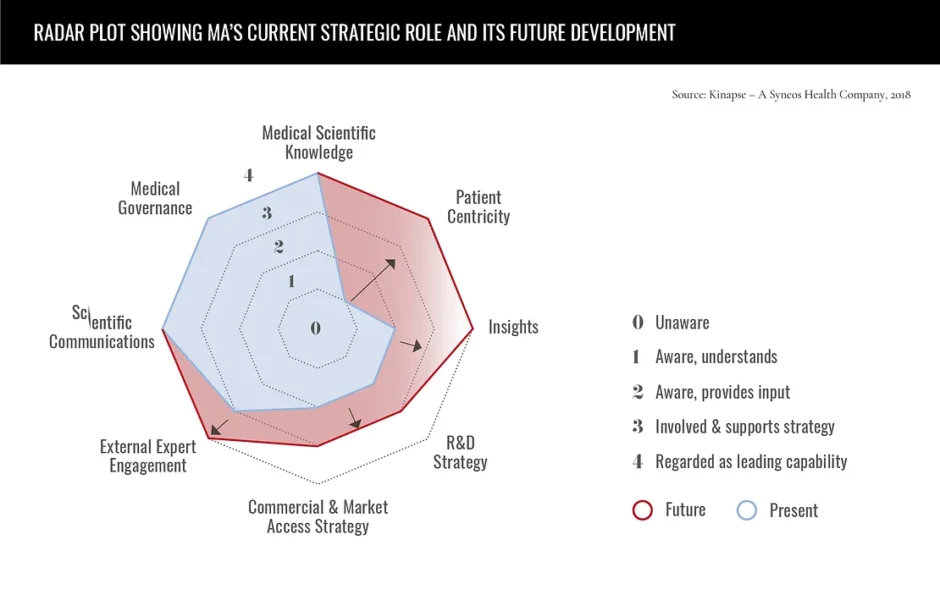Words by Louise Rogers
“Leadership is about making others better as a result of your presence and making sure that impact lasts in your absence.” This eloquent definition from Sheryl Sandberg places action and responsibility at the heart of leadership and encompasses the understanding of someone who has the potential to make a difference.
The last decade has seen MA flourish, moving from a supporting act in the wings to take centre stage in a leading role shaping the future of the industry. Perfectly positioned to bridge the gap between R&D and commercial, the time for MA to lead is now, seizing their strategic position within the industry to guide the future of the division. What does it take for a team to cast and define the new MA infrastructure, and who are the people leading the change?
“At Merck, my teams and I represent MA by understanding and living the responsibilities that come with partnerships. We are the ones who the clinical community trust and depend on”, says Jit Saini, SVP, Head of MA EMEA, Merck KGaA. The demand from HCPs for clearer, more robust scientific data to support the commercial messages signal a clear opportunity for MA to lead cross-functional efforts, ensuring that the data gaps are understood by all stakeholders.
“All parties need to comprehend what evidence is scientifically possible to generate during the life cycle of a medicine or vaccine, including how long it will take”, explains Danie du Plessis, President, Medical Affairs Professional Society (MAPS) EMEA. “Therefore, MA should be exceptional in listening skills and be focussed on external as well as internal stakeholders, understand the data needs, and generate evidence wherever possible in a much quicker way than before.”
In addition to their scientific and product expertise and excellent communication skills, MA must have good business acumen to understand what is needed commercially and thereby translate the data into a strategic language that will ultimately drive innovation and improve patient outcomes.
Dr Sarah Payne, Global MA Leader, AstraZeneca, explains how she works together with her cross-functional team to build strategic plans: “To deliver excellence, the internal team needs to be underpinned by having a clear and reputable vision. I take great care in making sure every voice is heard and that we all look to walk in step to deliver a plan in a unified and co-ordinated fashion. This is critical to ensure we push scientific boundaries moving forward.”
We must lead by example in MA as we are the closest to the patient and physician
For MA, the whole is greater than the sum of its parts; however the capability to inspire performance and drive team efforts lie with those individuals who encompass the right demeanour and mentality. To take a sporting example, Jürgen Klopp’s appointment as Liverpool FC manager in 2015 has sparked many conversations around his leadership style (disclosure: I am a Chelsea fan, so can confirm no bias in this analogy). While the players skills are beyond doubt, and the team already very strong, there is no denying the huge impact his leadership skills have had on the club’s recent success, being credited by team members for motivating them in different ways every day. His time at the club has orchestrated the importance of philosophy, team chemistry, and the value of identity in each player.
Dr Payne’s thoughts echo these sentiments: “The most important aspect of being a leader is to put your team at the heart of what you do and to nurture their development. A team will be composed of people with different strengths and ensuring everyone has the chance to reach their full potential, while continuing to grow and learn, will always be a key to the success of a team.”
“We must lead by example in MA as we are the closest to the patient and physician. Therefore, authenticity and integrity are, and always will be, highly prized attributes for leaders and team members alike”, explains Saini.
Du Plessis discusses how companies with the right culture and leadership will also attract and retain the best available talent. Relevant to the department’s potential growth, the talent pool remains small, leaving MA as a competitive space. Regarding fostering the right departmental culture, he comments on the necessity of “the ability to bring one’s whole self to work, be respected for one’s knowledge and different opinions, and having the opportunity to be coached to become the best one can be.”
To deliver excellence, the internal team needs to be underpinned by having a clear and reputable vision
“Like any function, the principles of good leadership also apply, and we need to ensure we continue to develop our people, growing their competencies, and ensuring they have robust and demonstrable career progression. Our teams feel empowered and respected, and, as partners, they have the ability to shape Merck’s portfolio and see meaning in their work each and every day”, says Saini.
For MA, the time to take charge is now. People with the right mentality and skillsets will be crucial in utilising the strategic position MA occupies to lay the foundations for revolutionising the relationship between patients, physicians, and pharma.










